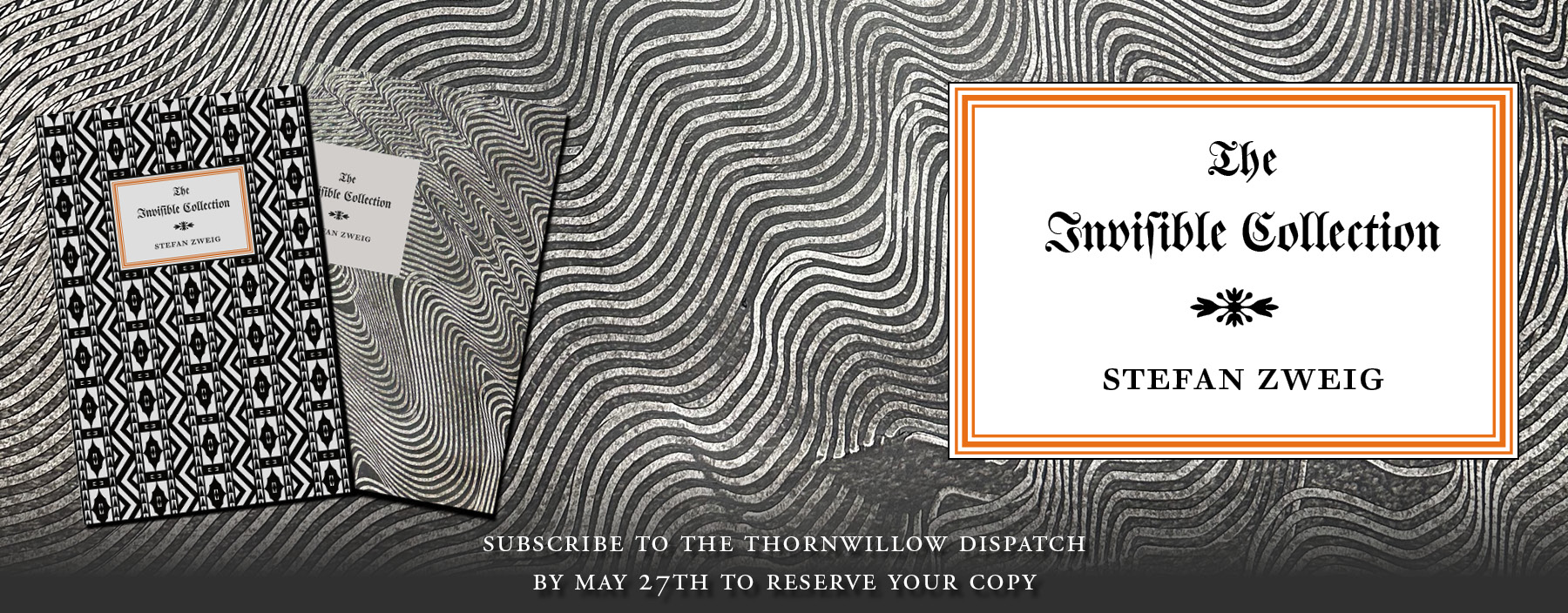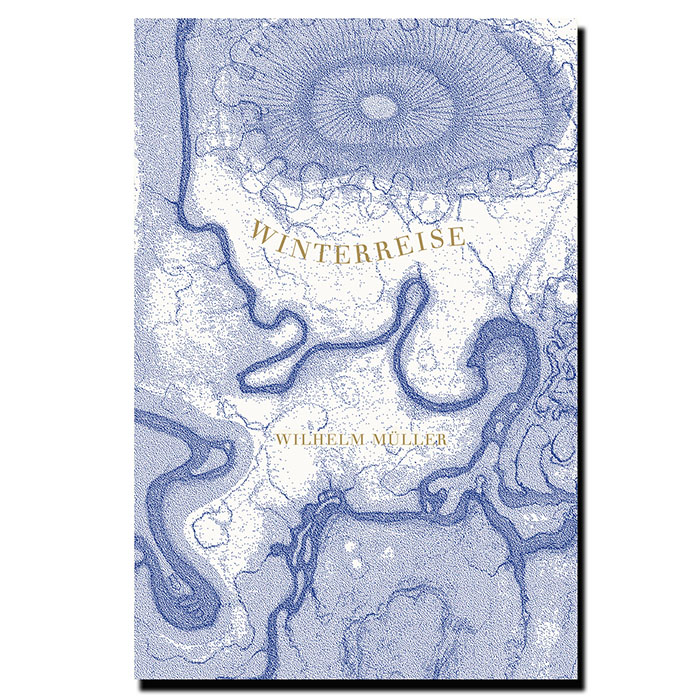Announcing:
The June Thornwillow Dispatch
"The Invisible Collection"
by Stefan Zweig
“Today would perhaps be the happiest day of his life; he’s been waiting years for a chance to show a connoisseur his darlings.”
Dear friends of Thornwillow,
It gives us great pleasure to announce the next Thornwillow Dispatch: "The Invisible Collection", an elegant and captivating tale by one of the greatest storytellers of all time, Stefan Zweig. We are excited to present the text in his original German along with a new English translation made especially for this edition by celebrated translator and dear friend, John Hargraves.
"The Invisible Collection"
"The Invisible Collection" is a masterpiece of the short story genre. It is narrated by an art dealer who is inspired to visit an aged veteran who was known for having incredible taste in art and a superb print collection. Upon arrival, the dealer discovers that the collector has gone blind. But though he has lost his sight, the collector is more passionate and engaged than ever with the art he cannot see.
"The Invisible Collection" is available for pre-order via subscription to the Thornwillow Dispatch until May 27th, 2023. EST in three letterpress printed limited editions:
- Classic Edition: Copies bound in letterpress paper wrappers
- Patrons’ Edition: Volumes featuring deluxe engraved paper wrappers
- Centaur Patrons’ Edition: Hardbound in cloth and decorative paper boards*
Patrons’ and Centaur Patrons’ Editions will also be individually numbered and signed by the publisher.
*Available only to Centaur Patron subscribers to the Thornwillow Dispatch
About Stefan Zweig:
Without question, one of the greatest writers of the 20th Century, Zweig is not as well known today by English readers as he should be.
Stefan Zweig was an Austrian novelist, biographer, journalist, and playwright. He was born and raised in Vienna, Austria. After studying philosophy at the University of Vienna and earning his doctoral degree in 1904, Zweig dedicated himself to writing and by the 1920s and 1930s became one of the most widely translated and popular writers in the world.
He wrote historical studies of famous literary figures in Drei Meister (1920; Three Masters), and decisive historical events in Sternstunden der Menschheit (1928; published in English in 1940 as The Tide of Fortune: Twelve Historical Miniatures). This brilliant collection of vignettes that focus on pivotal turning points in history that could have easily gone in a different direction, is a masterpiece of the imagination. Zweig’s most celebrated novels include Letter from an Unknown Woman (1922), Amok (1922), Confusion (1927), The Royal Game (1941), and a psychological novel Beware of Pity (1939).
In 1934, Zweig emigrated to England and then, in 1940 moved briefly to New York and finally to Brazil, where he and his wife settled. In his final years, he found himself in love with the country, writing about it in his book Brazil, Land of the Future. But as events in Europe evolved for the worst, Zweig became increasingly disillusioned and distraught. Tragically, he and his wife, Lotte, were found dead by overdose in their house in Petrópolis on February 23rd, 1942.
About the translator, John Hargraves:
We are so happy to present Zweig's iconic story in Zweig's original German and in a new translation made especially for our edition by John Hargraves. John is an accomplished writer and translator and former professor of German literature at Yale and Connecticut College. He is a celebrated connoisseur of the German language and of classical music. Also a gifted pianist and musical director, John bridges his interest in music and literature in remarkable ways. He has written a book and multiple articles on both and translated numerous German works into English. John is co-founder and president of Musical Masterworks in Old Lyme, a chamber music series there, and also serves as a board member of the Vienna Philharmonic Society of New York and the Metropolitan Opera Guild.









